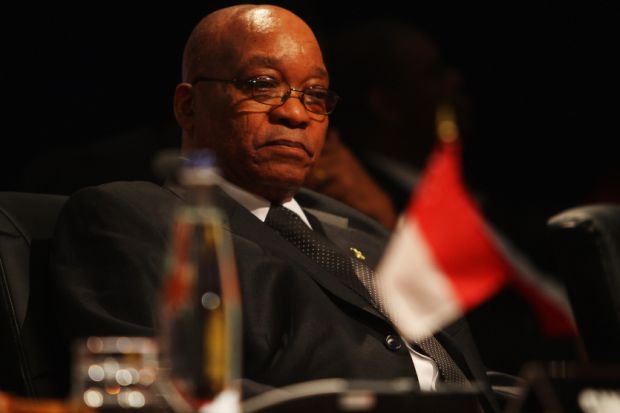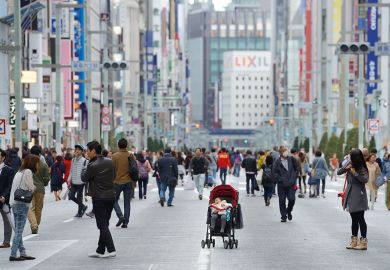South Africa’s president has called on the country’s universities to open up dialogue with students, after a wave of unrest on campuses.
Jacob Zuma also announced a task force to tackle funding challenges facing students at a summit with vice-chancellors, called as a result of what the president described as “unacceptable levels of violence” at higher education institutions.
Most recently, lectures had to be suspended at the University of KwaZulu-Natal after students burned cars and petrol-bombed an office in protest at an increase in the minimum average mark required for students to qualify for financial support and a planned hike in a registration fee.
Mr Zuma said that universities “must open up legitimate channels for discussion and dialogue over matters concerning students, with a view to resolving whatever issues they raise”.
“We believe that university management must be more proactive and not allow matters to deteriorate to such an extent that students go on a rampage, often due to lack of understanding and knowledge of the situation and spurred by poor communication,” Mr Zuma said. “Similarly, institutions of higher learning must follow their rules and procedures to arrive at amicable solutions to whatever problems or challenges they may encounter.”
Mr Zuma also said that, while he supported the right of students to protest, this right “should be exercised with utmost responsibility, ensuring that the rights of other South Africans are not violated in the process”.
“We therefore strongly condemn the violence and destruction of property that has taken place at some of our universities in the name of student protests over the past year or so, and most recently at the University of KwaZulu-Natal,” Mr Zuma said. “All forms of dispute must be resolved through negotiation and that where wanton acts of criminality take place, the law must take its course.”
The president said that financial support had been increased from 441 million rand (£21.5 million) in 1997 to more than 9.5 billion rand (£463 million) but he acknowledged that this was “clearly still insufficient to support all poor and academically deserving students”.
He said that a task force of government officials, vice-chancellors and student representatives had been formed “to explore solutions to short-term student funding challenges”.
Efforts were also being made to source additional funding, root out fraud and improve the disbursement of support, Mr Zuma said.
Not all of the demonstrations on South African campuses have been triggered by financial issues, with what Mr Zuma described as the “slow pace” of transformation at historically white universities also a cause for concern.
Students have protested at Stellenbosch University after a documentary, Luister, highlighted alleged discrimination against black students; while the University of Cape Town experienced a lengthy campaign for the removal of a statue of Cecil Rhodes.
A summit on the issue of transformation was due to be held in Durban from 15 to 17 October and Mr Zuma said that he hoped that this would “open up dialogue and come up with concrete steps to deal with the challenges in the higher education system”.




